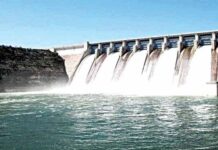Although the International Criminal Court (ICC) in The Hague has issued an arrest warrant for President Vladimir Putin, this is only the first step in a lengthy process.
The UN clearly believes there is enough evidence to charge Russia’s president with war crimes in Ukraine.
However, the practical and logistical issues involved in pursuing such a case are enormous.
Can President Putin be arrested?
At the moment, the Russian leader wields unrivaled power in his homeland, so the Kremlin is unlikely to hand him over to the ICC.
He is not at risk of arrest as long as he remains in Russia.
If Mr. Putin leaves the country, he may be detained. However, given that his freedom of movement is already severely restricted by international sanctions, he is unlikely to appear in a country that wishes to put him on trial.
Can President Putin be arrested?
At present, the Russian leader enjoys unchallenged power in his native land, so there is no prospect of the Kremlin handing him over to the ICC.
As long as he stays put in Russia, he faces no risk of being arrested.
Mr. Putin could be detained if he leaves the country. But, given the fact that his freedom of movement is already severely limited by international sanctions against him, he is unlikely to show up in a country that would want to put him on trial.
Will Putin actually face trial?
There are at least two big obstacles to that. Firstly, Russia does not recognize the jurisdiction of the ICC.
The court was established in 2002 by a treaty known as the Rome Statute.
This statute lays down that it is the duty of every state to exercise its own criminal jurisdiction over those responsible for international crimes. The ICC can only intervene where a state is unable or unwilling to carry out the investigation and prosecute perpetrators.













